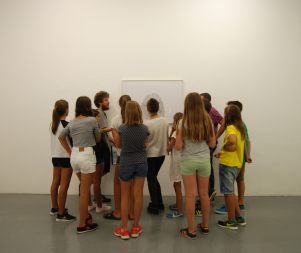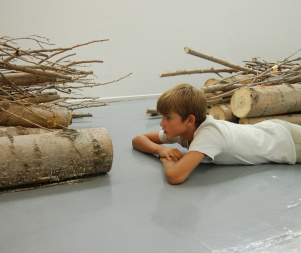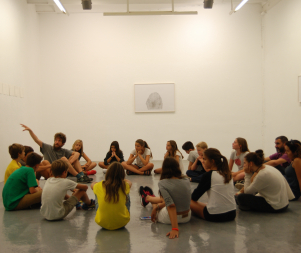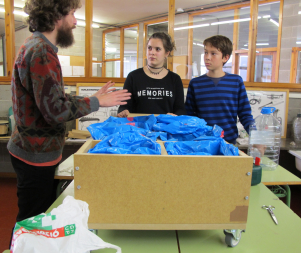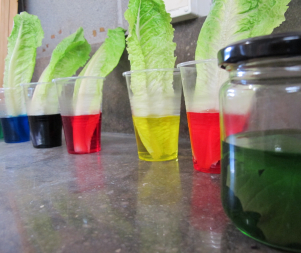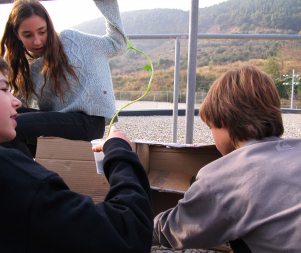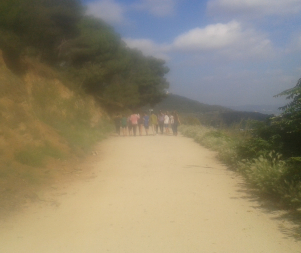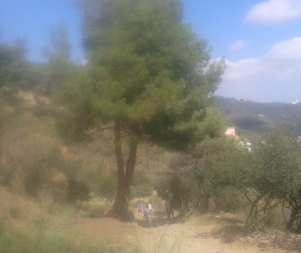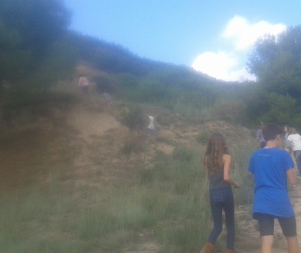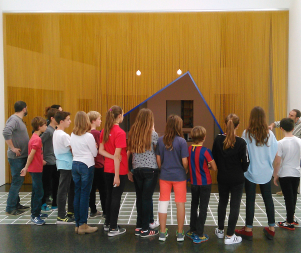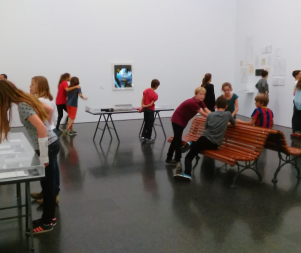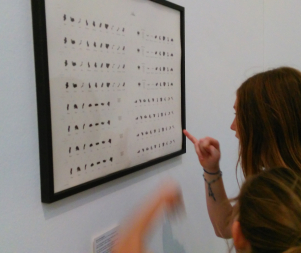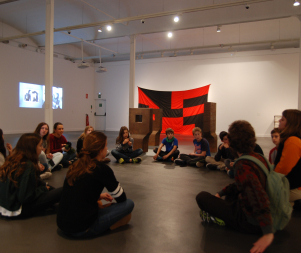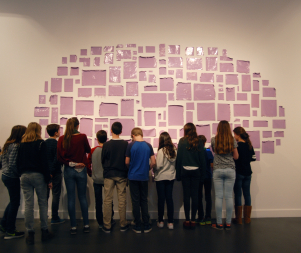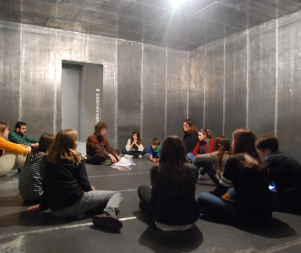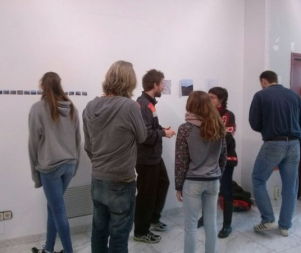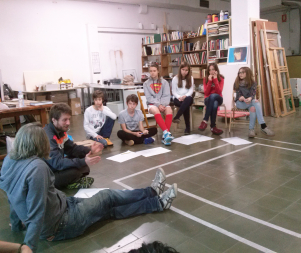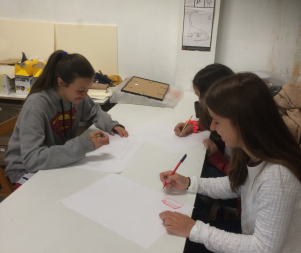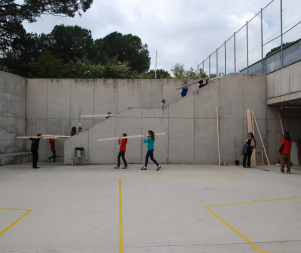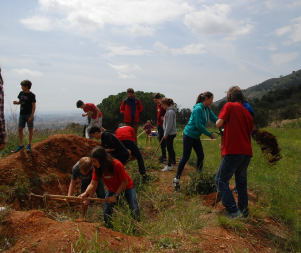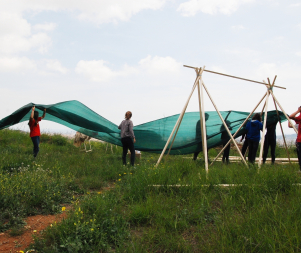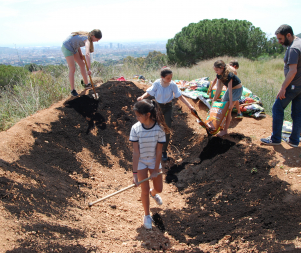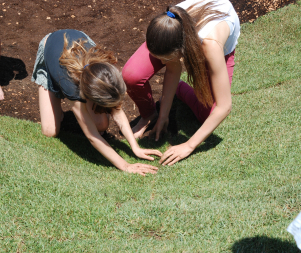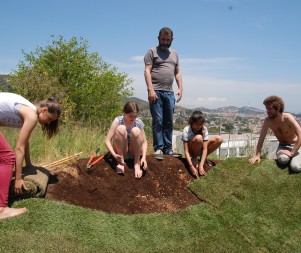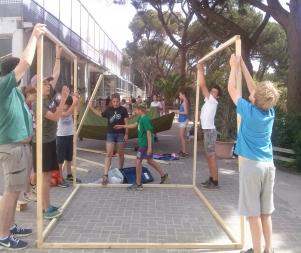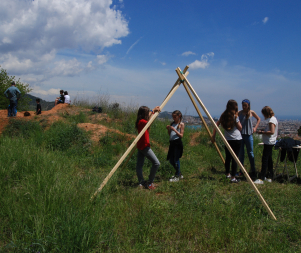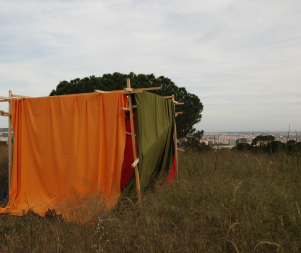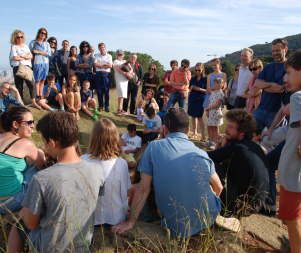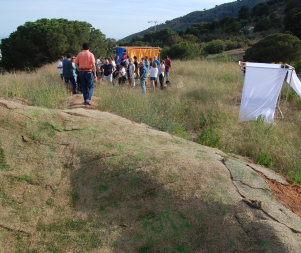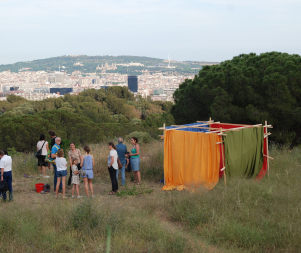- 14th EDITION 2022 / 2023
- 13th EDITION 2021 / 2022
- 12th EDITION 2020 / 2021
- 11th EDITION 2019 / 2020
- 10th EDITION 2018 / 2019
- 9th EDITION 2017 / 2018
- 8th EDITION 2016 / 2017
- 7th EDITION 2015 / 2016
- 6th EDITION 2014 / 2015
- 5th EDITION 2013 / 2014
- 4th EDITION 2012 / 2013
- 3rd EDITION 2011 / 2012
- 2nd EDITION 2010 / 2011
- 1st EDITION 2009 / 2010
Pep Vidal IN RESiDENCE at the School Costa i Llobera
Introduction to the artist and his work
The first session with the artist took place at the ADN gallery, where Pep Vidal was giving a solo exhibition. At the visit to the show, the pupils, the teachers and the artist introduced themselves and began to discuss ideas about the work on show: on trees, nature, measurements, calculations and experiments.
First thoughts, first reference points
The visit to the exhibition is followed by time spent thinking about how to formalise the work and the idea. The works in the show give the group the idea of working on a new formalisation of some of them in order to share them. They decide to create small projects based on two elements: a plant and a book. At the same time, they establish relations with contemporary artworks to enrich these links between formalisation and idea. In small groups, they work on small projects.
Outing to the Carretera de les Aigües path
The group make an outing to the Carretera de les Aigües path to discover the natural environment around the school. Many weeks later, this outing will inspire the idea of working on a site near the school.
MACBA: Espècies d'Espais [Species of Spaces]
A guided tour of this exhibition with the show's curator is organised. The curator explains the exhibition narrative and talks to the pupils and the artist.
CaixaFòrum and the experience in Joseph Beuys' Chamber of Pain
The temporary exhibition Parlo sabent que no es tracta d'això [I Speak Knowing It's Not About Speaking] includes a work by Pep Vidal. The group discuss his project and also visit an installation by Joseph Beuys, Chamber of Pain, when they begin to discuss the idea of creating a space for thought. During this visit, too, Pep Vidal tells them about his experience of living in a hut… Finally, the idea emerges of building a hut as a space for thought.
Salamina workshop
Initial ideas about huts, a day spent conceptualising with the families
To shape the idea of the hut, one-day session is organised at the Salamina workshop, where Pep Vidal has his own workspace. All participating pupils and their families are invited, along with other artists and people familiar with Pep Vidal's work. Two lines of activity emerge from this session: the crater hut (digging a hole) and the hut with collapsible.
Selection of the location and work with materials
After two sessions of designing and drawing structures, the group devotes several more to experimenting with materials: they begin with wood and clothing as the basic elements for building a hut, and decide that the location of the hut will be close to the school, in an open-air site.
The two huts
The second type of hut they want to investigate is the crater hut. Over the course of several sessions, the group digs a hole to make such a hut. Once the hole is big enough, they line it with grass to create a comfortable space for thought.
Final construction
After making the crater hut, the group builds the cabins with different structures. They make three according to the different designs they have produced. However, they all share one thing in common: they are collapsible due to the site where they will be installed, a place where human and animal activity cannot be controlled.
Presentation
The presentation revolves around the crater hut. The event is conducted by the pupils, who explain the process, along with Pep Vidal and the teachers. The presentation is attended by family, friends and teachers and is followed by a small snack made by the pupils and served at the other cabins.

